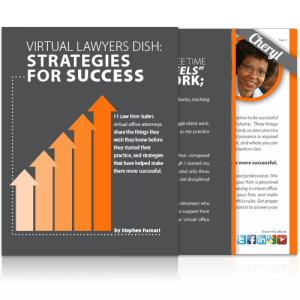NYC Estate Planning Attorney Thomas K. Chu helps solo and small firm lawyers plan for incapacity or death to protect clients and secure their practice’s future.
Succession planning is a critical yet often neglected aspect of managing a solo or small law firm. NYC estate planning lawyer Thomas K. Chu understands the unique challenges attorneys face when it comes to planning for the unexpected.
Whether it’s a temporary disruption, a long-term absence, or the eventual closure of your practice, having a clear plan in place ensures your clients are protected and your practice is managed smoothly. In this article, we’ll explore Chu’s insights into contingency, continuity, and closure planning, and how these steps can help safeguard your firm’s future.
This information was originally presented to the Nassau County Bar Association, Tech & Practice Management Section.
Estate Planning is Different for Self-Employed Attorneys
According to Chu, every attorney should have a basic estate plan, which includes:
- A Last Will and Testament
- A Durable Power of Attorney
- A Health Care Proxy and Living Will
- A HIPAA Release Form
However, attorneys face unique considerations when it comes to succession planning. Beyond selecting an executor, you’ll need to choose someone who can close your practice or manage cases during your incapacity. This could be the same person or an assisting attorney with a springing power of attorney.
Contingency vs. Continuity vs. Closure Planning
Succession planning for attorneys can be divided into three main areas: contingency, continuity, and closure.
1. Contingency Planning
Contingency planning addresses short-term disruptions, such as travel delays or infrastructure failures (e.g., power or internet outages). The goal is to keep your practice running smoothly until you’re able to return. This may involve delegating tasks to staff or a trusted colleague.
2. Continuity Planning
Continuity planning goes further, outlining how your practice can continue in your absence due to longer-term incapacity or disability. This often involves appointing an assisting attorney who can manage your practice under a springing power of attorney, activated when you are unable to fulfill your duties.
3. Closure Planning
Closure planning is critical if you’re no longer able to return to your practice. It includes detailed instructions for handling open and closed files, managing office assets, and closing financial accounts. You’ll need to ensure your chosen executor or assisting attorney can access vital information, such as passwords and billing systems, and can communicate with clients and the courts about your practice’s closure.
Office Procedure Checklist
To make contingency, continuity, and closure planning easier, NYC estate planning lawyer Thomas K. Chu recommends systemizing and documenting your office procedures, including:
- Conflict-of-interest procedure
- Calendaring system and deadlines
- Client file organization
- Client billing and collection process
- Open and closed file process
- File retention policy
- Original client document storage
- Safe deposit box access
- Bank account information (including trust accounts)
- Online banking and ATM card access
- Bill payment process
- Online and computer passwords
- Voicemail passwords and instructions
- Insurance information (including broker contacts)
By documenting these processes, you’ll make it easier for someone else to step in and manage your practice if necessary.
What to Do Now: Practical Steps
To ensure your succession planning is effective, take these steps:
- Document Your Office Procedures: A clear, organized process helps ensure business continuity.
- Choose a Colleague for Your Springing Power of Attorney: Select someone you trust to manage your practice if you’re incapacitated.
- Prepare Necessary Documents: Make sure your legal documents, such as your power of attorney and succession plan, are up to date.
- Create a “Rainy Day” Fund: Aim to accumulate at least three months of resources to cover basic expenses during a disruption, and consider taking out disability insurance.
Office Closure Checklist
If closure becomes necessary, your executor or assisting attorney should follow this checklist:
- Check the calendar for urgent hearings, appointments, etc.
- Contact clients to reschedule or postpone appointments
- Advise courts and opposing counsel; confirm changes in writing
- Open and review all unopened mail
- Follow office procedures manual
- Contact active clients
- Notify non-lawyer colleagues (e.g., staff, insurance professionals, landlord)
- Return and close client files
- Continue malpractice insurance
- Close trust accounts
- Issue final bills
- Pay business expenses (including insurance)
- Liquidate or sell the practice
- Special Considerations for PCs and PLLCs
- If your law firm operates as a Professional Corporation (PC) or Professional Limited Liability Company (PLLC), you must include resolutions that allow someone to act on behalf of the entity. This is especially important for succession planning, as the entity’s structure may limit the authority of an executor or assisting attorney to make decisions without explicit authorization.
Securing Your Firm’s Future
For solo and small firm attorneys, succession planning isn’t just a way to protect your practice—it’s a way to safeguard your clients, ensure continuity, and ease the burden on your loved ones. By creating a contingency, continuity, and closure plan now, you can prevent uncertainty and chaos later.
Don’t leave the future of your practice to chance. Start preparing today to ensure that both your professional legacy and your clients are taken care of, no matter what happens.
Need Assistance? Contact NYC Estate Planning Attorney Thomas K. Chu
Thomas K. Chu, Esq.
Estate and Business Succession Planning
11 Broadway, Suite 615
New York, NY 10004
Tel +1 212-882-1128



